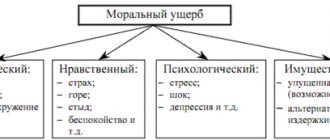Divorce of spouses does not mean that the responsibility for raising and maintaining joint children falls on only one of the parents. On the contrary, it imposes equal obligations on the mother and father of the child. The payment of child support from a parent who does not live together with them raises a lot of controversy. Sometimes the amount of the required contributions loses its relevance or becomes unaffordable for the father of the child. Then he may need to apply for a reduction in alimony. How and when is it compiled, what arguments should be given in it?
Grounds for reducing alimony
In accordance with Article 119 of the Family Code of the Russian Federation, the amount of alimony established by the court can be revised at the request of the payer or recipient. A necessary condition for this is a change in the financial or marital status of one of the parties.
An alimony payer who is in a difficult life situation may apply to the court to reduce the amount or to completely exempt him from paying it. It is necessary to prove in court that the financial situation of the payer does not allow making deductions in the previous amounts.
When determining the financial situation of the payer and recipient of alimony payments, the court takes into account all types of income:
- income from business and the use of intellectual property;
- pensions and benefits;
- wage;
- payments for compensation for health damage;
- other income.
and any movable and immovable property, including:
- securities;
- shares;
- deposits;
- shares in the authorized capital of LLC.
Note!
To establish the circumstances of the change in the marital status of the alimony payer, the court finds out whether he has other dependent persons.
Other circumstances influencing the outcome of the case are the presence of a disease that prevents the continuation of previous work, the incapacity of the alimony payer or the restoration of the alimony recipient’s ability to work, the recipient’s need for financial support, in accordance with age and state of health. This approach is aimed at maintaining a balance of interests of the parties within the framework of alimony relations.
Reasons for reducing alimony payments
The legal grounds for changing the amount of alimony (including the requirement to reduce it) are enshrined in Art. 119 RF IC.
These provisions of the law state that if any of the parties has significantly changed their family or financial situation, then the court can decide the issue of either changing alimony or canceling it.
In relation to the reduction of alimony, the circumstances that are taken into account by the court may be:
- the birth of another illegitimate child or a child in another marriage;
- disability, serious illness, loss of ability to work, which resulted in a change in the level of material well-being;
- difficult life circumstances directly related to material well-being (fire, disaster, serious illness of close relatives).
- other circumstances that the court may take into account.
Important! Changing the amount of alimony is most often allowed only in relation to obligations that are established in a fixed monetary amount. However, Part 2 of Art. 81 of the RF IC gives courts the right to also increase or decrease the size of fixed shares of all types of earnings in the presence of noteworthy circumstances.
With the birth of another child, alimony may be reduced, but only if it is collected proportionally for all children.
In this case, alimony is not automatically reduced due to the birth of another child; the court may refuse to reduce it if it determines that collecting alimony for all children is only a way to reduce payments.
Where and how to file a claim
Cases regarding claims for reduction of alimony, in accordance with Art. 23 of the Code of Civil Procedure of the Russian Federation, are within the jurisdiction of the magistrate as a court of first instance. According to the rules of Art. 28 of the Code of Civil Procedure of the Russian Federation, the statement of claim is filed with the court at the place of residence of the defendant.
Using the electronic service on the website of justices of the peace, you can find the address of the court site by entering the name of the subject of the Russian Federation, locality and street of residence of the defendant.
The rules for calculating the state duty, defined in paragraphs. 1 clause 1 art. 333.19 of the Tax Code of the Russian Federation for a claim of a property nature subject to assessment. On the official website of justices of the peace there is a calculator for calculating state fees. In this case, the cost of the claim is the total amount by which monthly alimony payments should be reduced for one year.
Note!
You can submit a claim to the magistrate by:
- personal appeal to the court;
- through a representative;
- an electronic form for filing a claim posted on the official website of the court;
- by registered mail with a description of the contents and notification of delivery.
Refusal and return of the claim
The court may refuse to accept a statement of claim or return it immediately after acceptance in a number of cases:
- The document was not drawn up in accordance with the requirements of Articles 131-132 of the Code of Civil Procedure of the Russian Federation.
- The application was submitted by a third party who was in no way connected with the issue under consideration.
- A similar case was previously decided.
- The wrong court was chosen (for example, district instead of magistrate).
- The plaintiff is incompetent.
- The plaintiff himself withdrew his application.
Filing a claim in itself becomes quite a serious problem for those people who have never done anything like this before. And in the case of alimony payments, where many individual factors and characteristics need to be taken into account, it becomes almost impossible. Before submitting documents, we recommend consulting with specialists at our free consultation. Experienced lawyers will explain the main points, help with the preparation and selection of all the necessary papers, and, if necessary, will represent your interests in court.
FREE CONSULTATIONS are available for you! If you want to solve exactly your problem, then
:
- describe your situation to a lawyer in an online chat;
- write a question in the form below;
- call Moscow and Moscow region
- call St. Petersburg and region
Save or share the link on social networks
- FREE for a lawyer!
Write your question, our lawyer will prepare an answer for FREE and call you back in 5 minutes.
By submitting data you agree to the Consent to PD processing, PD Processing Policy and User Agreement
Useful information on the topic
2
Child support outside of marriage, in a civil marriage
From the point of view of legislation, a child must be provided for by his parents, outside of...

4
Child support from an individual entrepreneur
Child support can be recovered from an individual entrepreneur based on...

9
Alimony for three children: amount, percentage
Any parent is obliged to support their children, regardless of...

1
Alimony from old age pension, disability pension, military personnel, Ministry of Internal Affairs
Parents are obligated to support their children and each other regardless...

3
Denial of paternity
The main reason why the child's father wants to abandon him...

2
Calculation of alimony debt
Statistically, every third potential payer does not pay alimony. Wherein…
How to write a statement of claim
In accordance with Art. 131 of the Code of Civil Procedure of the Russian Federation, a statement of claim is submitted to the court in writing. It must indicate:
- the name of the court in which it is filed;
- the name of the plaintiff and his place of residence, as well as the name of the representative and his address, if the application is submitted by a representative;
- name of the defendant, his place of residence;
- an indication of a violation of the rights, freedoms or legitimate interests of the plaintiff by the existing amount of alimony and a requirement to reduce its amount;
- the circumstances on which the plaintiff bases his claims and evidence supporting these circumstances;
- cost of claim;
- calculation of the amount of money;
- list of documents attached to the application.
The application may also indicate the contact information of the plaintiff, his representative, the defendant, other information relevant to the consideration and resolution of the case, and set out the petitions.
The statement of claim is signed by the plaintiff or his representative if authorized.
Specific ways to switch to reduced alimony payments
There are several ways to reduce your child support amount. Here are some of them:
- file a lawsuit to change the interest accrual to a fixed rate (or vice versa);
- reduce the share payment, which is greater than the minimum specified in the RF IC;
- agree with the other parent on a new amount that would be affordable for the child support payer.
But in any case, paying child support for a minor child is the responsibility of the parent.
Features of the transition from lobar to solid form
Typically, such a transition is carried out if the payer does not have a regular income, so it will not be possible to calculate interest on the salary received. If a person had a job at the time alimony was established, from the moment of losing this job he will have to look for alternative methods of calculation. A fixed rate is the best option if income is not systematic or regular.
Transition to a shared form of calculating alimony
If alimony was previously calculated using a fixed method, but then the alimony payer got a well-paid job and his income increased significantly, he will also have to look for an alternative. In this case, you can recalculate according to the share principle. Especially if the person is dependent on another child. Then it will be possible to reduce the amount of payments for one child, taking into account that another has appeared in the family, and he is also dependent on the alimony payer.
The calculation is based on the fact that in the case of a fixed rate, a child needs to pay 25% of income, and for two children 50%. If we talk about sharing, you only need to pay 33% of your earnings to support two children, which is much more profitable.
Required documents for the claim
According to Art. 132 of the Code of Civil Procedure of the Russian Federation, the following must be attached to the statement of claim:
- its copies for defendants and third parties;
- document confirming payment of the duty;
- a document certifying the authority of the plaintiff's representative;
- documents confirming the circumstances on which the plaintiff bases his claims, copies of these documents for defendants and third parties, if they do not have copies;
- calculation of the disputed amount of money, signed by the plaintiff, his representative and copies of the calculation to the defendant and third parties.
Documents confirming the impossibility of maintaining the previous amount of alimony can be certificates of the plaintiff’s income, documents confirming the impossibility of employment, establishing disability, or others indicating a deterioration in his health or financial situation. Evidence may include information about persons who are dependent on the plaintiff, in addition to the recipient of alimony.
Reasons for reducing the amount
In order to have a chance to actually reduce the amount of deductions, the reasons for this must be very compelling. There are 3 main options:
- The welfare of the alimony recipient. In this case, the fact that the recipient may not deny himself anything is taken into account, and the payer, on the contrary, lives from hand to mouth.
- Payer's welfare. This takes into account the sharp deterioration in financial condition, the loss of a well-paid job, the need to incur serious costs for some important projects, provide for a new family, and so on.
- Payer's health status. It is quite logical that a person suffering from a serious illness (or even more so if for some reason he has become a disabled person of group 1-2) cannot maintain payments at the previous level.
Trial in court
According to Part 1 of Article 154 of the Code of Civil Procedure of the Russian Federation, the case regarding a claim to reduce the amount of alimony must be considered no later than a month from the date of receipt of the application to the court.
After receiving the statement of claim, the judge makes a ruling on preparing the case for trial. This is an instruction for the parties to the case, which indicates the actions that must be taken so that the court can comprehensively assess the situation.
During the preparation of the case for trial, the plaintiff or his representative:
- transfers to the defendant copies of evidence justifying the impossibility of paying alimony in the previous amount;
- petitions to obtain evidence that he cannot obtain without the help of a court.
The defendant or his representative:
- clarifies the claims and the plaintiff’s grounds for them;
- submits written objections to the claim to the plaintiff or his representative and the court;
- provides the plaintiff or his representative and the judge with evidence substantiating his objections;
- submits petitions to the judge to obtain evidence that he cannot obtain without the help of a court.
When preparing for the case, the judge explains to the parties their rights and obligations, proposes to end the case with a settlement agreement, interviews the plaintiff and defendant, finds out their attitude to the stated requirements, resolves issues of calling witnesses, requesting documents and information, and takes other actions to collect evidence in the case.
Having decided that all the circumstances have been clarified and the preparation of evidence has been completed, the judge assigns the case to trial and notifies the parties of the time and place of the hearing.
At the hearing, the parties take turns presenting arguments in defense of their position. Explanations of the parties and third parties, testimony of witnesses, written and material evidence, audio and video recordings, and expert opinions are accepted as evidence. After studying the evidence, the court announces the operative part of the decision - whether to satisfy or deny the claims. A reasoned court decision will contain a conclusion on each of the evidence presented at the hearing, whether it is an indisputable confirmation of the legality of the plaintiff’s claims or the defendant’s objections.
Counterclaim
In addition to the settlement agreement, there is also such a thing as a counterclaim. This is a statement from the defendant, in which he describes the situation from his point of view and attaches evidence of his case. The court will consider both applications simultaneously.
Example : The plaintiff files an application with the court demanding a reduction in the amount of deductions on the grounds that he is obliged to support a new family. The defendant files a counterclaim stating (and presenting evidence) that the second member of the plaintiff's new family brings significant amounts of money into the home. They are more than enough for a comfortable life. In such a situation, if the facts are confirmed, the claim will most likely be denied.







